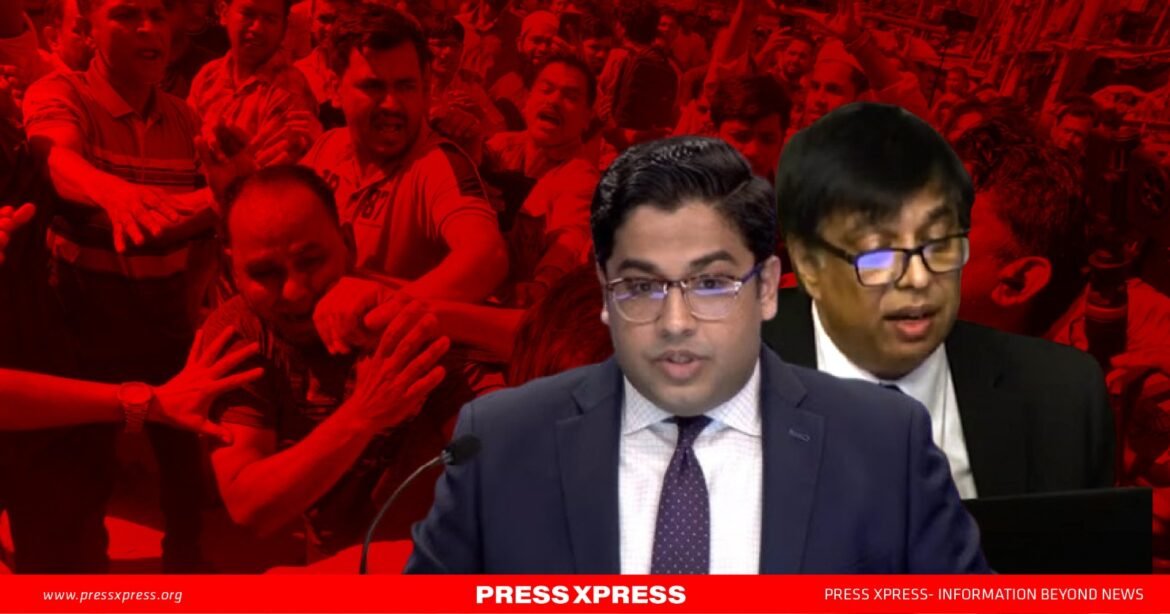In a recent U.S. Department of State press briefing, spokesperson Vedant Patel addressed significant concerns surrounding freedom of assembly and press freedom in Bangladesh. Dastagir Jahangir, USA Bureau Chief of Press Xpress, posed the questions after reports surfaced that Bangladeshi authorities took hard measures to prevent Awami League activists from organizing a political rally on November 10. These developments have raised international concern over the state of democratic rights in Bangladesh.
U.S. Emphasis on Freedom of Assembly for All Voices
In response to Jahangir’s question on how the U.S. views the actions preventing political gatherings in Dhaka, Patel emphasized the United States’ commitment to supporting fundamental democratic freedoms, specifically the right to peaceful assembly and expression. “We support the freedom of expression and peaceful assembly and association for all, including dissenting opposition voices,” Patel remarked. He noted that these freedoms are “essential elements of any democracy” and emphasized their importance to Bangladesh’s future as a democratic nation.
The U.S. State Department regularly communicates this stance to its global partners, including the interim government in Bangladesh, currently led by Dr. Yunus. Patel reiterated that safeguarding these freedoms is essential to securing a true democratic future, ensuring that all Bangladeshi citizens, regardless of political affiliation, have the right to organize and express their views without hindrance.
Responses on Press Freedom issue
Jahangir followed up with a question regarding reports that the press accreditation for 184 journalists in Bangladesh, including the bureau chief of the Associated Press, had been revoked. This action has drawn international scrutiny, with the Committee to Protect Journalists (CPJ) recently sending a letter to Dr. Yunus to highlight the critical importance of safeguarding journalists’ rights amid what many perceive as an increasingly restrictive environment.
Patel responded by affirming the U.S. government’s “strong point of view” on press freedom, describing it as “vital” for covering events and issues, including those currently unfolding in Bangladesh. He underscored that press freedom remains a priority for both the U.S. President and the Secretary of State. Although Patel had yet to verify the specific reports, he acknowledged that, if accurate, these restrictions would be “unfortunate.”
The U.S., he added, is committed to ensuring that journalists in Bangladesh can operate freely and securely. “We want to ensure that the rights and freedom of all journalists are being properly respected,” he stated, emphasizing that a free and independent press is a core pillar of democracy.
Democratic Values at Risk
The recent restrictions on political gatherings and press freedoms have fueled concerns that Bangladesh’s democratic principles are at risk. The questions posed by Jahangir and Patel’s responses underscore the international community’s expectations for Bangladesh, emphasizing that a democratic future relies on protecting the voices of all, including political dissidents and the press.
As political tensions mount in Bangladesh, the United States has taken a clear stance in support of the right to peaceful assembly and press freedom. The U.S. Department of State’s position signals an ongoing commitment to these democratic values and sets a strong precedent for upholding the rights of citizens, journalists, and political dissidents alike.
In his closing comments, Patel emphasized that protecting these rights is foundational to any democracy and essential for ensuring that all voices can be heard. By addressing the concerns raised by Dastagir Jahangir, USA Bureau Chief of Press Xpress, the U.S. government reinforces its commitment to democratic principles and calls on Bangladesh to uphold these critical freedoms.


